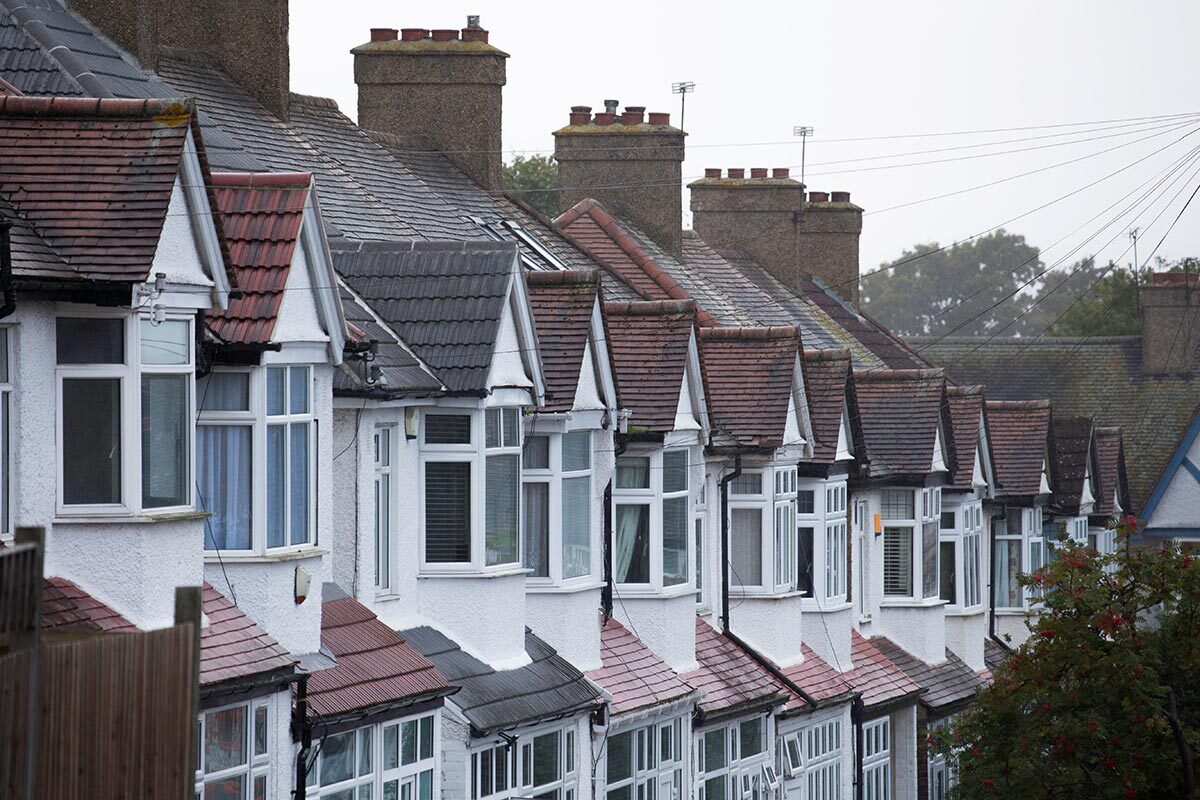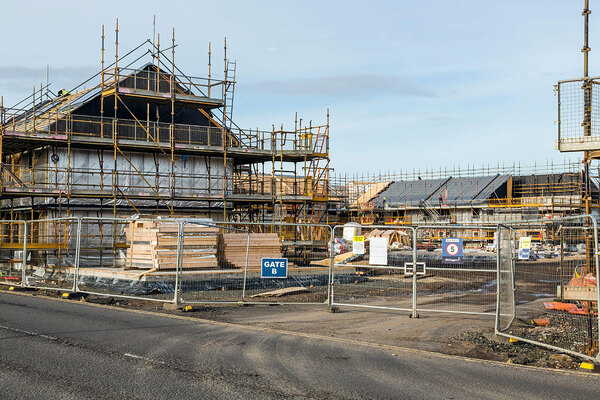
Jules Birch is an award-winning blogger who writes exclusive articles for Inside Housing
Are we in for a repeat of the 1990s?
From the Help to Buy to intergenerational differences in who owns housing equity, a housing crash today would likely play out very differently to what happened in the 1990s, when thousands lost their homes through evictions and repossessions, says Jules Birch
Kylie Minogue is riding high in the charts, Frankie Dettori wins the Ascot Gold Cup, and the housing market looks to be in deep trouble.
In 1992, as in 2023, the more some things change, the more they stay the same.
Part one of this column looked at the similarities and the differences between the situation now and 30 years ago. This second part looks at the potential consequences for the housing system as a whole and what the government can do about it.
Arrears and repossessions
This is the issue burned into the collective memory from the crash of the early 1990s, with repossessions peaking at 75,000 in 1992 and more than 400,000 owners losing their home in the decade as a whole.
The political impact was huge: the economic doom and gloom may well have contributed to the surprise Conservative victory at the general election in April 1992, but Black Wednesday that September ruined the party’s reputation for economic competence for years to come.
Partly thanks to that experience, and the losses made by lenders then, we are going into this downturn with arrears around half and repossessions about a quarter of the level at the equivalent stage in the 1990s cycle when prices were just beginning to fall.
A repeat currently looks unlikely unless we see second-round effects of sustained rate rises, including a recession and large-scale job losses – but the odds on those are shortening.
Housing equity
Another reason for (relative) optimism is that owners now have more far more equity in their properties than in the 1990s and so have a bigger cushion to fall back on if they run into difficulties.
However, this ignores the distribution of that housing wealth between older outright owners with a lot of it and younger people with mortgages, especially recent first-time buyers, with very little.
The worse the downturn gets, the more those intergenerational issues will come to the fore.
Support for mortgages
The government trumpeted the results of a meeting between chancellor Jeremy Hunt and bank chief executives last month, now formally set out in a Mortgage Charter.
Borrowers who run into payment problems should now be able to ask to extend their loan term or go interest-only without it affecting their credit rating.
This sounds like good news, except that it’s not clear whether that applies to all lenders, much the same thing was about to happen anyway and the impact on borrowers would be to increase debt over the longer term. It’s also not clear where that leaves people with mortgages that have already gone interest-only or been extended.
The hope for the government must be that interest rates are already near their peak and will come down as inflation falls. However, that’s not exactly worked out so far and further increases will pile on the pressure for more help for borrowers.
Some on the Conservative right with rose-tinted memories of Margaret Thatcher are calling for the restoration of mortgage tax relief.
The government is strongly resisting this on cost grounds – the value of tax relief peaked at £7.7bn in 1990-91 and would be many times that now – and because it would be a subsidy paid to everyone with a mortgage regardless of whether they need help or not.
“The state has a direct interest in propping up house prices: it was making a large paper profit when prices were rising, but that could turn into a significant loss from loans repaid once they have fallen”
One option for direct help for hard-pressed owners is Support for Mortgage Interest (SMI). This was supporting up to 500,000 borrowers in the early 1990s, but was quietly converted from a benefit into a loan in 2018. Calls for SMI to become more generous will grow louder, the longer the downturn continues.
However, if owners need help with higher mortgages, what about tenants paying higher rents? Thanks to Buy to Let, there is often a direct connection between the two.
Figures released by the Office for National Statistics (ONS) show that private rents rose 5% in the year to May 2023, the highest annual rate since it starting publishing data in 2016. However, Zoopla and others estimates that rents for new lettings are rising at double that rate.
Despite this, Local Housing Allowance (LHA) rates remain frozen at April 2020 levels and just 4% of private rentals are affordable within LHA rates. It is hard to think of a better way to generate rent arrears and homelessness.
Help to Buy
Another big difference to 30 years ago is that the government owns a share in around 280,000 homes bought via the Help to Buy equity loan scheme (taking account of the 100,000 loans repaid since it was created in 2013).
Two points flow from that. First, the state has a direct interest in propping up house prices: it was making a large paper profit when prices were rising, but that could turn into a significant loss from loans repaid once they have fallen.
Second, the families the scheme has helped are among the most vulnerable to a downturn – by definition they will be among the most recent buyers at the highest prices with the least equity. They will also have paid a new build and (arguably) Help to Buy premium that will add to the fall in the value of their home.
“As we saw in 1992, and again in 2008, a crash in the housing market would mean a collapse in development”
The most vulnerable of all could be those who used Help to Buy London to take out a larger, 40% equity loan with an average value of more than £160,000.
In a prolonged downturn, facing negative media coverage, the government will find it hard to resist calls to help those it ‘helped’ before.
Wider impacts
The main beneficiaries of Help to Buy were, of course, house builders and their executives and shareholders. The counter-argument is that it did at least boost home completions in the wake of the financial crisis and credit crunch.
If the downturn turns into a recession (which to the bank and the government looks like a lesser evil than inflation) and a housing market crash, those knock-on effects will work the other way around.
As we saw in 1992, and again in 2008, a crash in the housing market would mean a collapse in development. The big house builders look less financially vulnerable to write-downs and impairment now than they did after the financial crisis, but at a minimum they will slow down starts and completions and a prolonged downturn would mean big problems ahead.
And what about housing associations? In the 1990s, they were the beneficiaries of a £600m emergency ‘housing market package’ that enabled them to buy up unsold market homes, but 30 years on, they are themselves much more exposed to development for sale. We saw that to some extent after 2008, but they are now under pressure on multiple fronts.
A housing market crash would be an opportunity for a policy reset, but the stakes already look higher than in 1992 or 2008.
Jules Birch, columnist, Inside Housing
Sign up to our Best of In-Depth newsletter
We have recently relaunched our weekly Long Read newsletter as Best of In-Depth. The idea is to bring you a shorter selection of the very best analysis and comment we are publishing each week.
Already have an account? Click here to manage your newsletters.












